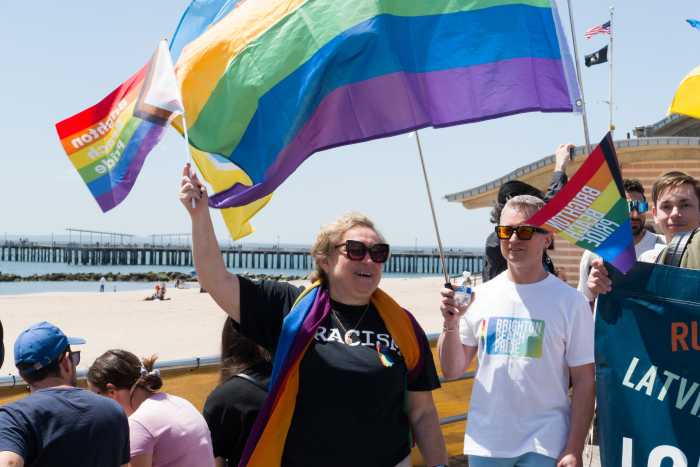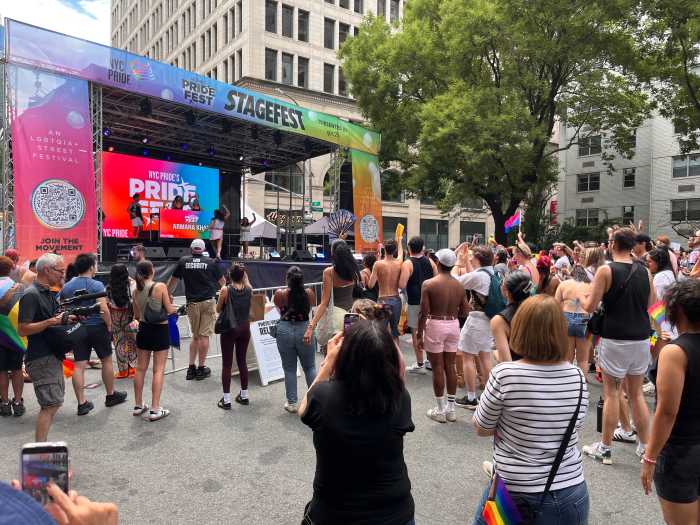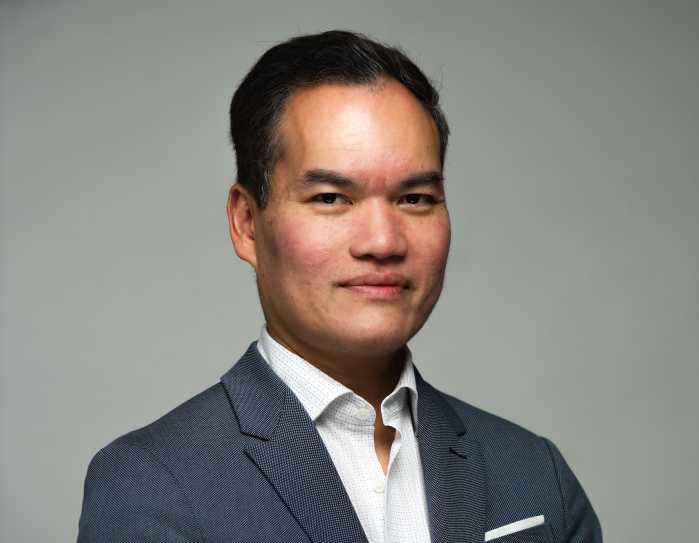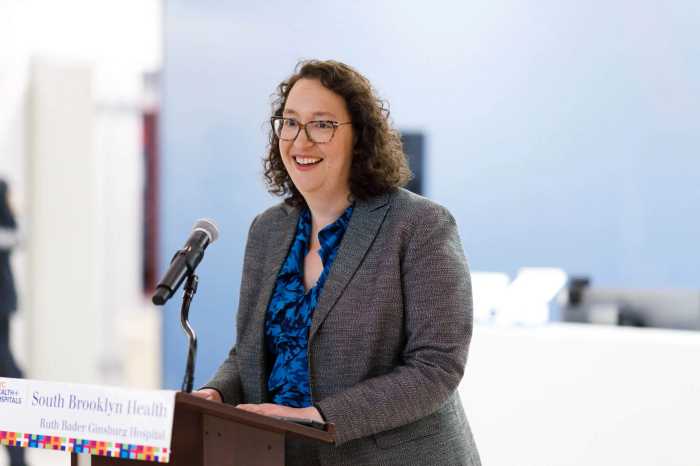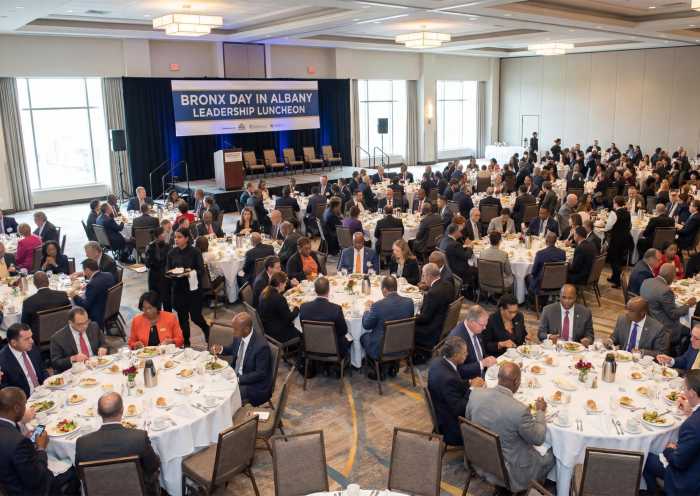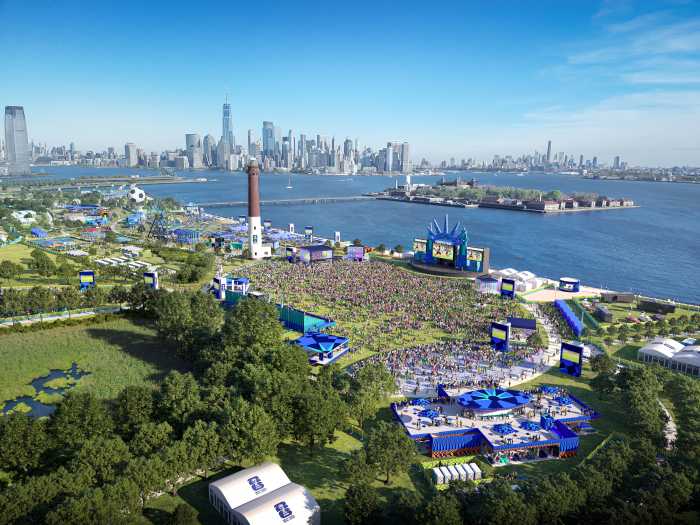At Pride events throughout the city — including Brighton Beach Pride, Brooklyn Pride, and Queens Pride — Gay City News asked New Yorkers about what Pride means to them.
Many of the answers to that question emphasized queer identity and the importance of living authentically, and the responses also reflected concerns about attacks on transgender rights and broader LGBTQ rights.
See their responses below:
Danielle Jackson, who is from the Flatbush section of Brooklyn:
“Pride, what it means to me as a pansexual woman of color, is to be liberated, with the friends that you love.”
Erica, 26:
Pride “means standing firm in who you are, and standing by your laurels.”
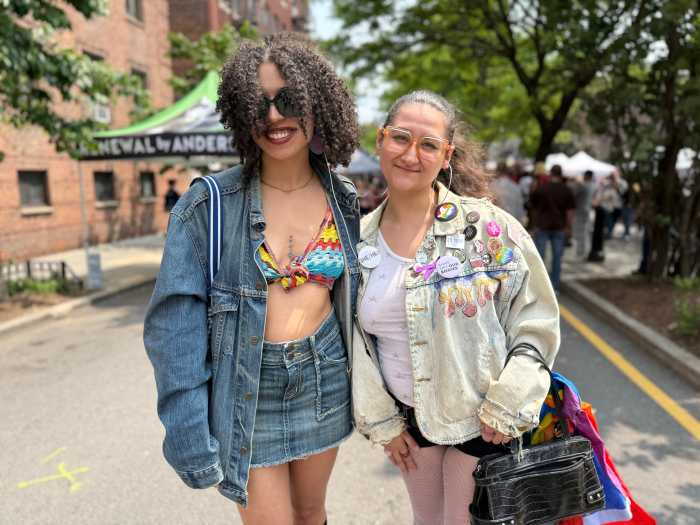
Tatyana, who is Ukrainian and attended Brooklyn Pride with her Russian wife, Valerie:
“For me, Pride means being in a place where I can be myself and where I don’t have to be afraid or boxed in, and showing my son that his family is amazing and beautiful and safe here,” Tatyana said. Compared to Manhattan, “Pride in Brooklyn is a much more chill and much more lesbian space,” she added.
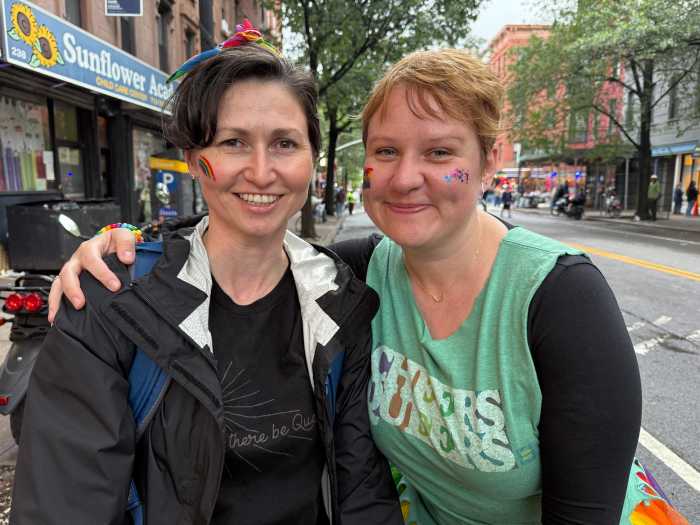
Shura, a sixth grader accompanied by her parents:
Pride is “a place where all the LGBTQ people can feel comfortable and see each other and communicate,” Shura explained. “Because people don’t have to be scared to show themselves and express themselves.”
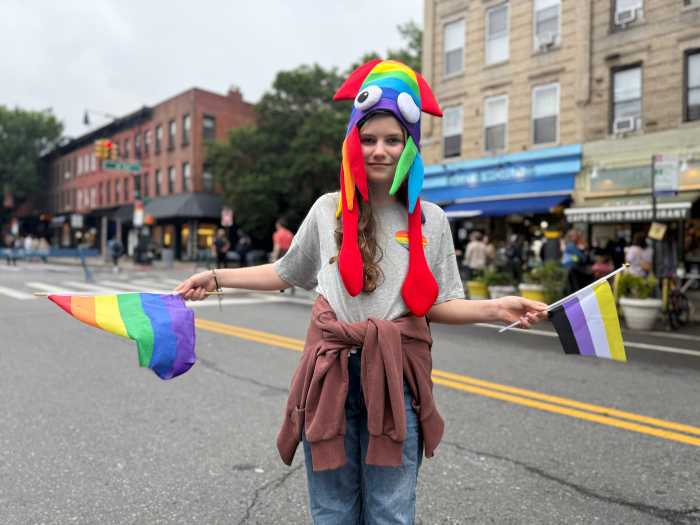
Brooklyn Pride’s co-grand marshal, Monica Hill, who also serves as the president of Prospect Park Women’s Softball League:
Pride is “a chance for all of us to come out and be amongst our community and show and express our joy, and especially in this year it’s an ounce of defiance mixed in,” Hill said.
S, a Queens native:
“Pride means full visibility really, and fully owning identity and queerness,” S said. “I identify as non-binary and transgender, and in this society with the level of discord and the fighting going on, it feels more important than ever to just own this, and celebrate the word ‘Pride.’”
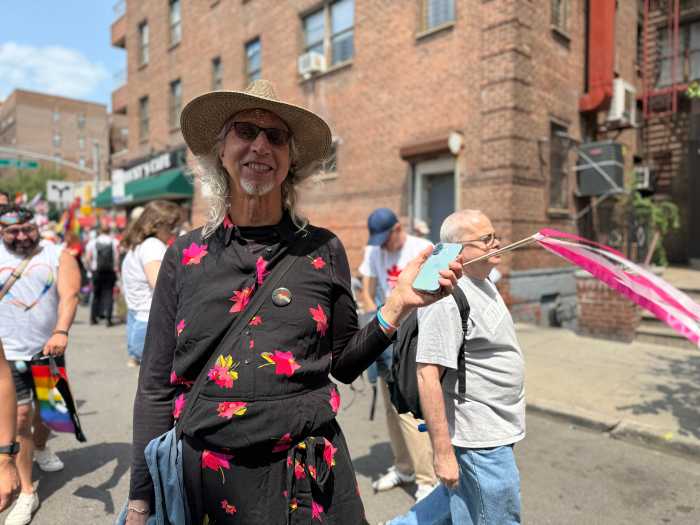
Pariss Roman, from Queens:
“[Pride] means liberation,” Roman said. “It’s a march, it is a fight against the man. As a queen from Queens, you’ve got to show up and show out for community.”
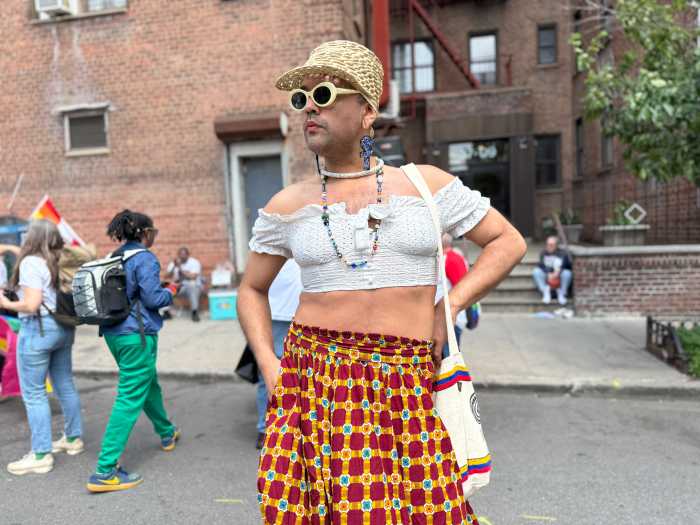
Lori Caraballo, 56, who remembers attending marches in Manhattan in the 1990s:
“Pride means a long, long haul,” Caraballo said. Pointing to her shirt from a 1994 pride march, Caraballo said, “I was here and it was not like this. … There was a lot of opposition, a lot of people telling us ‘you don’t have the right to exist.’ But we’re here and we’re queer, and look at Queens Pride, it’s huge.”
Erika, a 45-year-old trans woman originally from Mexico:
“It’s very important for us trans and non-binary people to represent our flag with Pride. I come from a country where [LGBTQ] people live in the shadows, in a very machista environment. I have found freedom here in the United States, but now not even here. Sometimes the sun comes out, sometimes it hides. That’s the same thing that’s happening to our community.”
Tomás, 35, who moved to Queens from Argentina with his partner, Gabriel.
Pride is “about resiliency, standing up to be who you are, where you are, without any apologies to ask for,” Tomás said.
Melissa Motley, 40, a Jackson Heights resident:
“As a mom, Pride means participating in supporting every single human being that deserves love and respect, and teaching my baby that that is the foundation of life — respect, love, joy, peace and happiness. He will grow up at Queens Pride; I want him to know nothing else.”
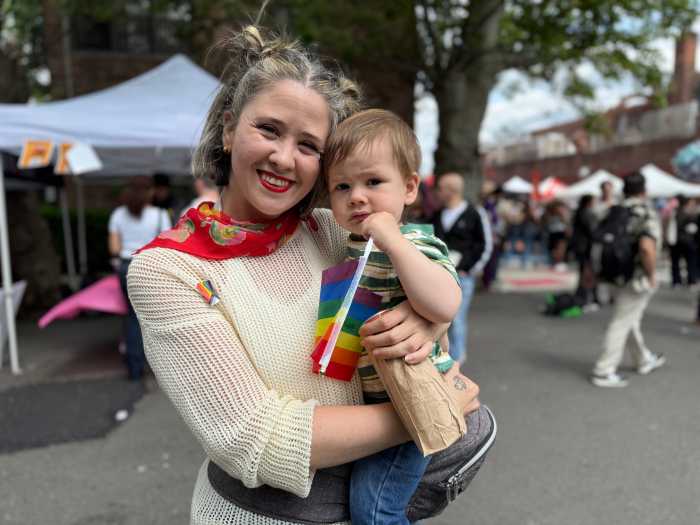
Moscow native Maxim Ibadov, a coordinator of Qaravan and a leader at Brighton Beach Pride:
“Pride to me means courage means being authentically yourself and not being afraid of being authentically yourself. It means being together with your community of people who will uplift you and support you. And it means knowing that no matter what happens, your true core stays true.
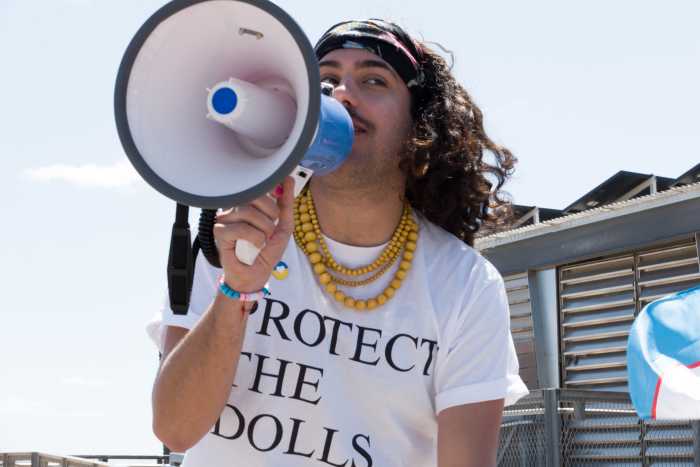
Kyiv native Yelena Goltsman, founder and president of the board of Qaravan:
“[It means] freedom. Freedoms are now being attacked, especially freedoms of trans people, LGBTQ people in general, immigrants. We’re here to demonstrate for freedom.”
